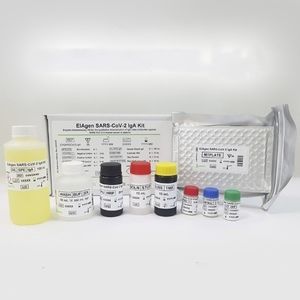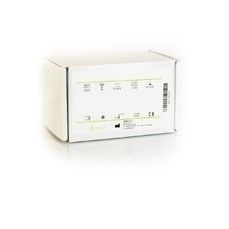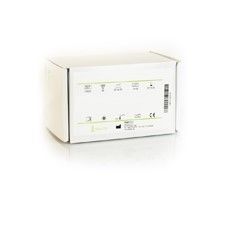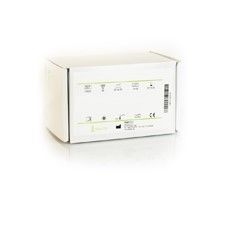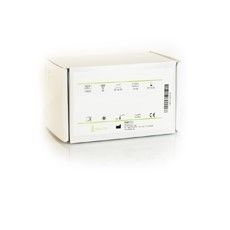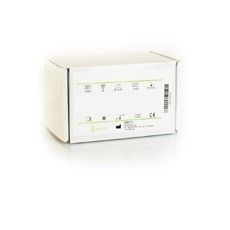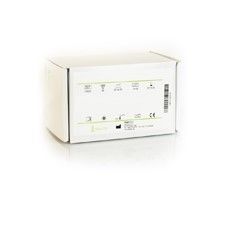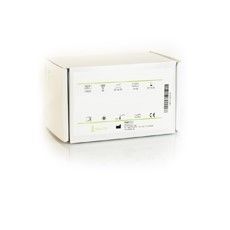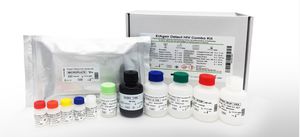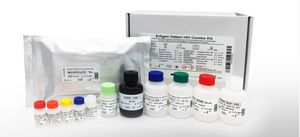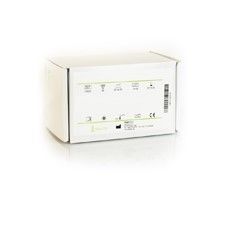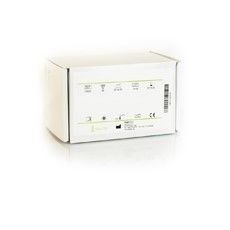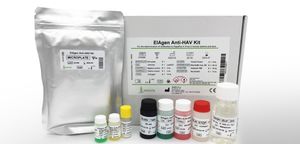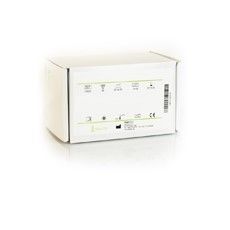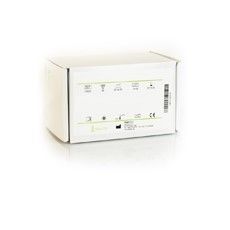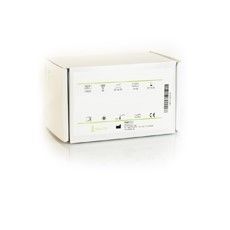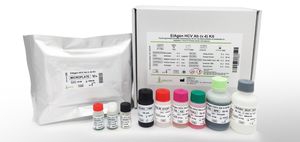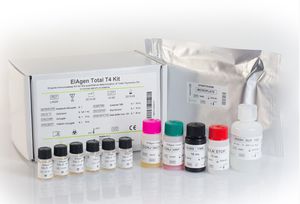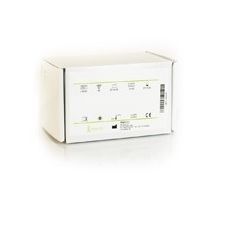
Toxoplasmosis test kit EIAgen for researchrheumatoid factorIgG
Add to favorites
Compare this product
Characteristics
- Applications
- for toxoplasmosis, for research
- Tested parameter
- rheumatoid factor, IgG, IgM
- Micro-organism
- Toxoplasma gondii
- Sample type
- plasma
- Analysis mode
- ELISA
Description
Enzyme ImmunoAssay (ELISA) for the determination of IgM antibodies to Toxoplasma gondii or T.gondii in human plasma and sera with the "capture" system. The device is intended for the follow-up of T.gondii infected patients and for the monitoring of risk of neonatal defects due to T.gondii infection during pregnancy. For Research Use Only.
Introduction
Toxoplasma gondii is an obligate intracellular protozoan parasite that is probably capable of infecting all species of mammals, including man.
The detection of IgM antibodies to T.gondii is particularly helpful for the diagnosis of acute infections in “risk” individuals, in association with AIDS, organ transplantation and pregnancy.
As most of T.gondii infections are mild or asymptomatic in otherwise healthy individuals, the detection of T.gondii specific IgM antibodies, in absence of detectable specific IgG, has become important for the monitoring of acute infections in pregnant women, as the parasite can lead to severe birth defects.
Moreover, as T.gondii infections are most severe in immunocompromised patients, where the disease can be fatal, acute infections due to this parasite have to be distinguished from other disorders.
Recently developed IgM capture assays provide the clinician with a helpful and reliable test, not affected by the rheumatoid factor as it happens to be in classic sandwich tests.
Principle of the Method
The assay is based on the principle of "IgM capture" where IgM class antibodies in the sample are first captured by the solid phase coated with anti hIgM antibody.
Related Searches
- Assay kit
- Solution reagent kit
- Blood assay kit
- Molecular biology reagent kit
- Serum assay kit
- Immunoassay assay kit
- Plasma assay kit
- Infectious disease detection kit
- Diagnostic reagent kit
- Molecular test kit
- Whole blood detection kit
- Respiratory infection test kit
- Clinical assay kit
- Optical assay kit
- Dye reagent
- Fluorescence assay kit
- ELISA assay kit
- Buffer solution reagent kit
- COVID-19 detection kit
- Real-time PCR test kit
*Prices are pre-tax. They exclude delivery charges and customs duties and do not include additional charges for installation or activation options. Prices are indicative only and may vary by country, with changes to the cost of raw materials and exchange rates.





